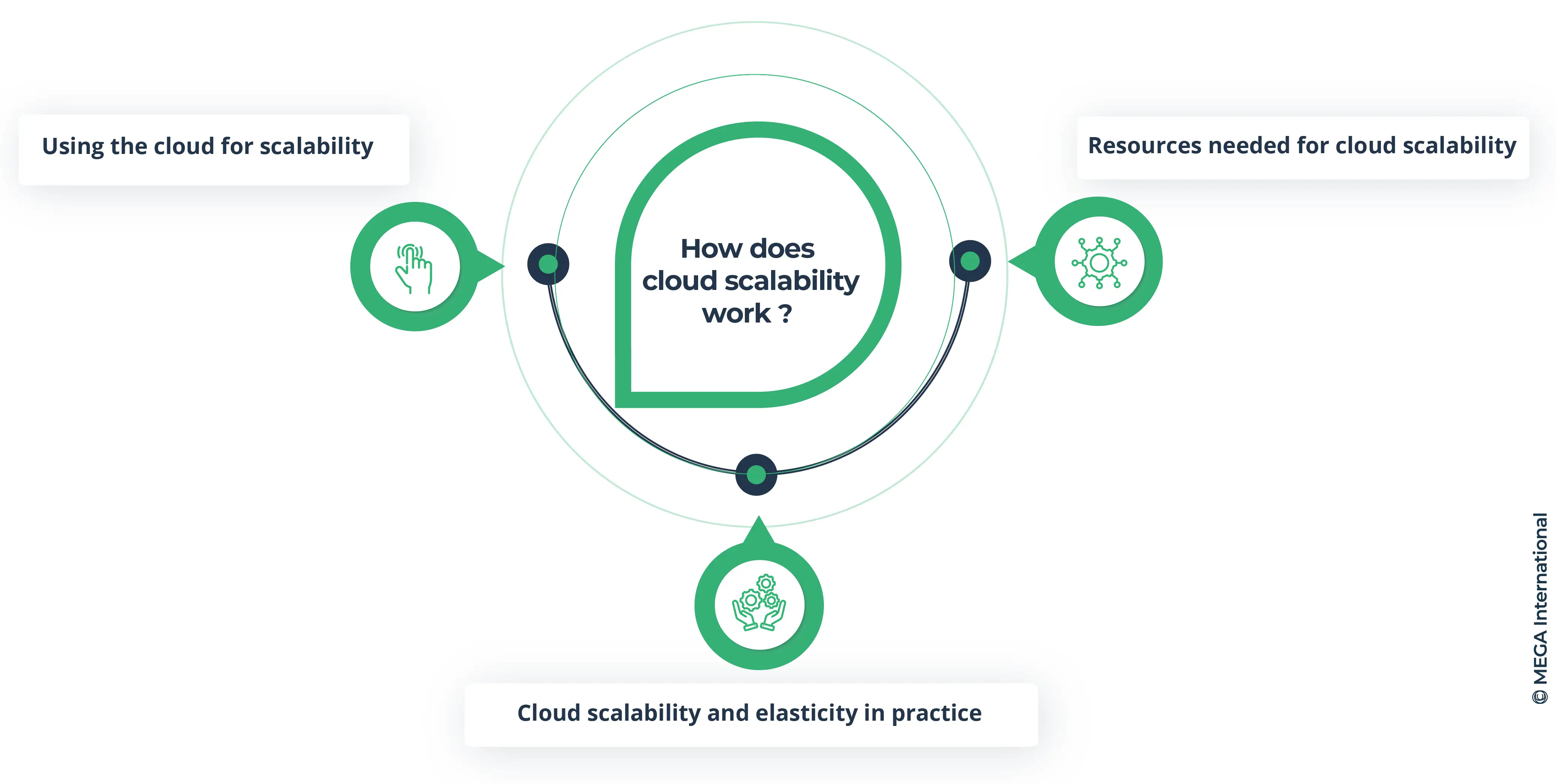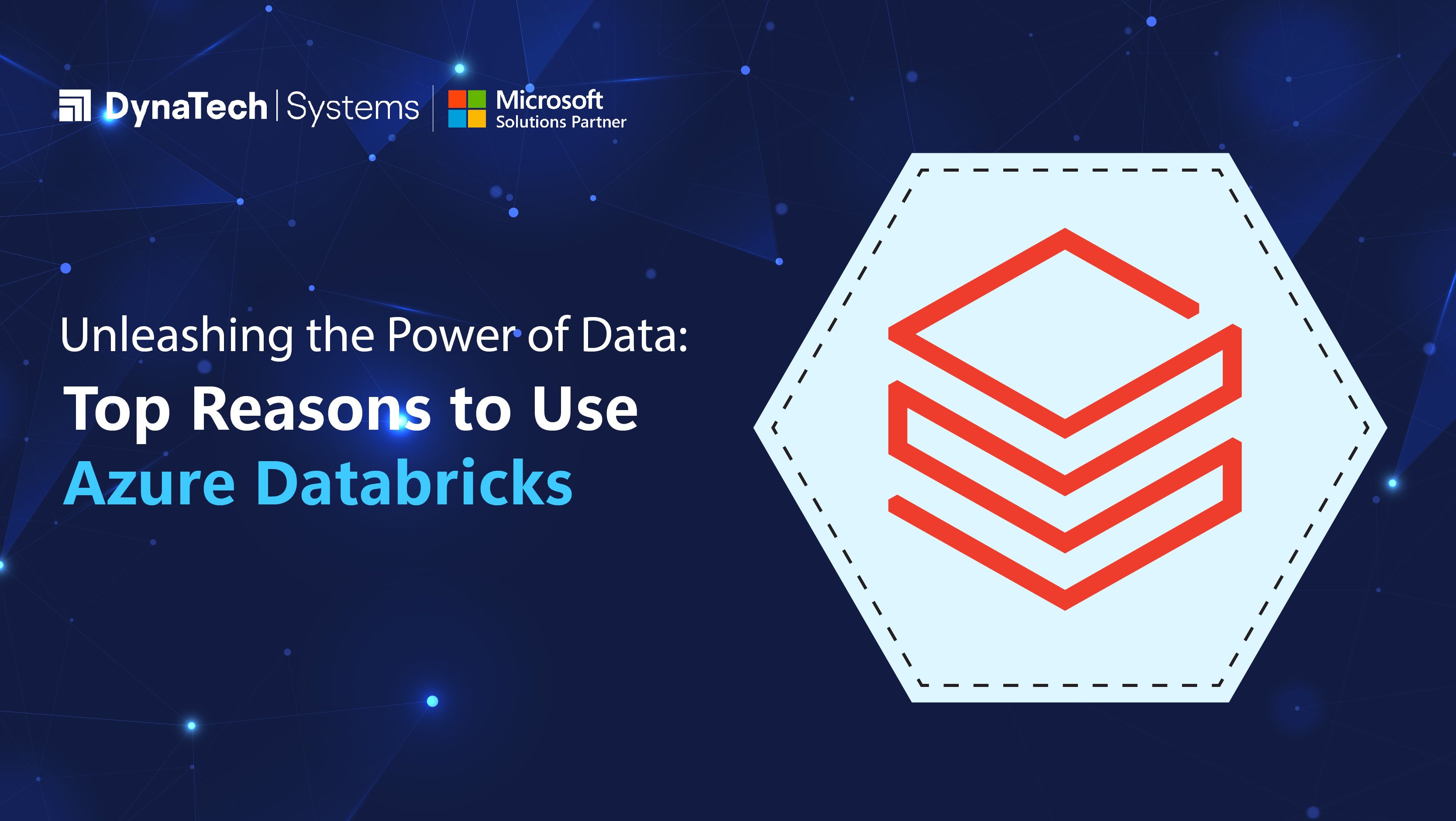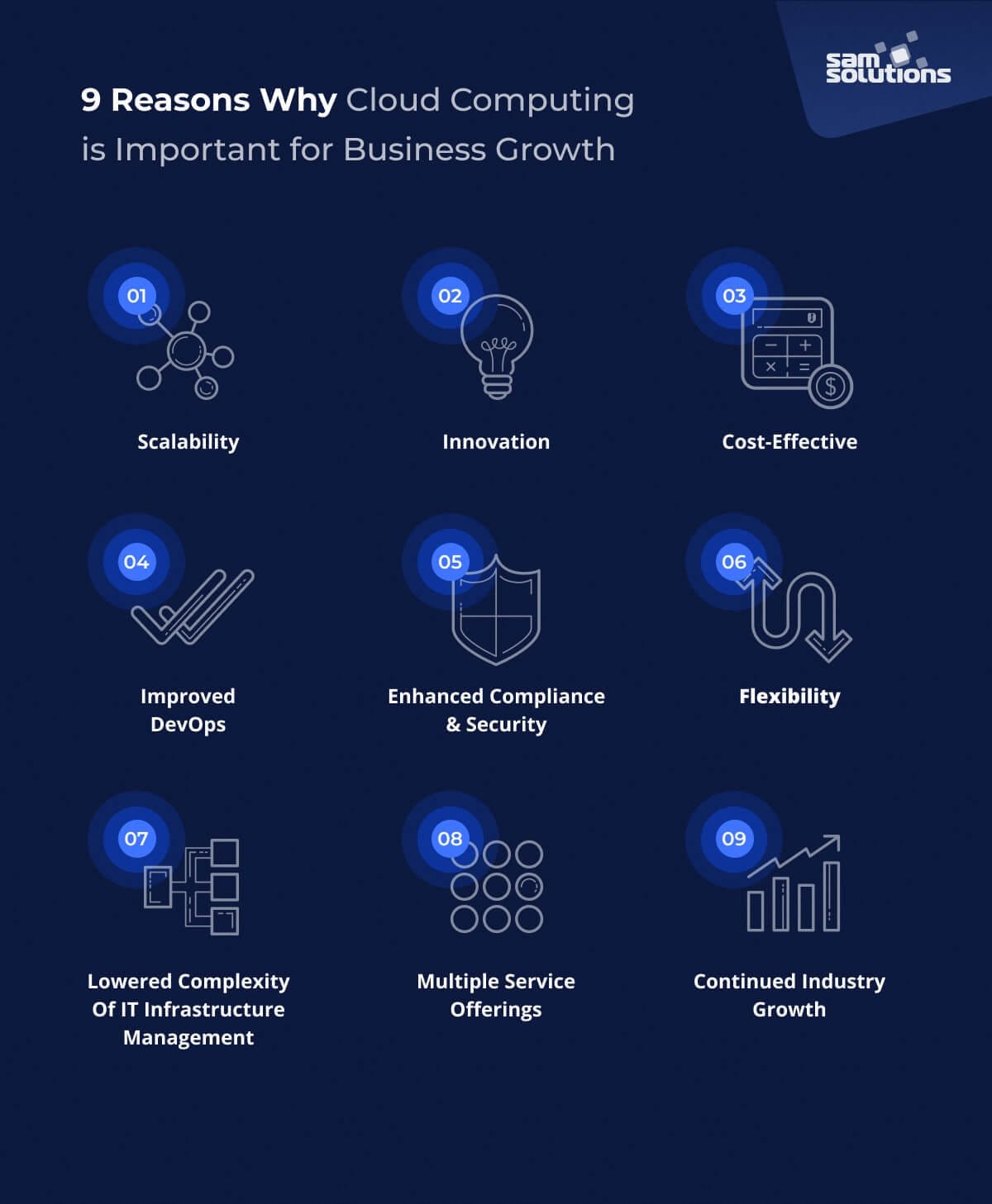To choose scalable cloud services, assess your business needs and future growth. Look for flexibility, reliability, and cost-effectiveness.
Choosing the right scalable cloud services is crucial for growing businesses. Cloud services offer flexibility, allowing you to scale resources as needed. This helps manage costs while maintaining high performance. Understanding your current and future needs is essential. Ensure the provider offers robust security and support.
Evaluate the pricing models to avoid hidden costs. Comparing different providers can help find the best fit. A reliable cloud service can enhance efficiency and support business growth. Always prioritize scalability, security, and support in your decision.
Introduction To Scalable Cloud Services
Choosing the right scalable cloud services is crucial for business growth. Scalable cloud services provide flexibility and efficiency. They help businesses handle increased demand seamlessly. This blog will guide you on how to choose the best scalable cloud services.
Importance Of Scalability
Scalability ensures your business can grow without technical limitations. It allows you to add resources as your needs increase. This means your system won’t crash under high traffic. Scalability helps you avoid downtime and maintain a smooth user experience.
There are two main types of scalability:
- Vertical Scaling: Adding more power to your existing machines.
- Horizontal Scaling: Adding more machines to your pool of resources.
Both methods are vital for different scenarios. Understanding them can help you make better decisions.
Key Benefits
Using scalable cloud services offers several advantages:
| Benefit | Description |
|---|---|
| Cost-Efficiency | Pay only for what you use. No need for over-provisioning. |
| Flexibility | Adjust resources quickly based on demand. |
| Performance | Ensure high availability and speed for users. |
| Reliability | Minimize downtime and improve system resilience. |
Choosing scalable cloud services can transform your business operations. It helps you stay competitive in a dynamic market.
Understanding Cloud Service Models
Choosing the right scalable cloud services can be a daunting task. Understanding the different cloud service models is crucial. These models include Infrastructure as a Service (IaaS), Platform as a Service (PaaS), and Software as a Service (SaaS). Each model offers unique benefits and features.
Infrastructure As A Service (iaas)
Infrastructure as a Service (IaaS) provides virtualized computing resources over the internet. Users can rent virtual machines, storage, and networks. IaaS is highly flexible and scalable. It is ideal for businesses needing control over their infrastructure. Common IaaS providers include Amazon Web Services (AWS), Microsoft Azure, and Google Cloud Platform.
| Features | Benefits |
|---|---|
| Scalability | Quickly scale resources up or down |
| Cost-Effective | Pay only for what you use |
| Control | Complete control over infrastructure |
Platform As A Service (paas)
Platform as a Service (PaaS) offers a platform allowing customers to develop, run, and manage applications. PaaS eliminates the complexity of building and maintaining infrastructure. It is perfect for developers who want to focus on coding. Popular PaaS providers include Heroku, Google App Engine, and Microsoft Azure.
- Application development
- Database management
- Middleware services
Software As A Service (saas)
Software as a Service (SaaS) delivers software applications over the internet. Users access software through a web browser, eliminating the need for installation. SaaS is user-friendly and accessible from anywhere. Well-known SaaS applications include Google Workspace, Microsoft Office 365, and Salesforce.
- Easy access
- Automatic updates
- Subscription-based pricing
Assessing Your Business Needs
Choosing the right scalable cloud services can be tough. You must assess your business needs. This step ensures your cloud solution matches your demands now and later. Let’s break down how to assess your needs.
Current Requirements
First, analyze your current requirements. Identify the applications you use daily. Understand your data storage needs. Evaluate your current network capacity.
Make a list of your current resources:
- Applications
- Data Storage
- Network Capacity
Determine if these resources meet your needs. If they fall short, note the gaps. This helps you choose a scalable cloud service that addresses these gaps.
Future Growth Projections
Next, consider your future growth projections. Plan for business expansion. Estimate your future data storage needs. Predict your future application usage.
Here’s how to plan for growth:
- Project future data storage needs
- Estimate future application usage
- Predict network capacity requirements
Create a table to compare your current and future needs:
| Current Needs | Future Needs |
|---|---|
| Data Storage | Increased Storage |
| Application Usage | More Applications |
| Network Capacity | Higher Capacity |
Understanding future growth helps you choose a scalable cloud service. This ensures smooth business operations as you grow.

Credit: www.mega.com
Evaluating Cloud Service Providers
Choosing scalable cloud service solutions requires careful evaluation of providers. The right provider ensures your business can grow without technical hiccups. This section will guide you through critical factors to consider.
Reputation And Reliability
Before choosing a cloud service provider, research their reputation. A provider with a strong track record is more likely to meet your needs. Look for reviews and testimonials from other businesses. Check how long they have been in the market. A well-established provider usually offers better stability.
Reliability is crucial. Look for providers with minimal downtime. Frequent outages can harm your business operations. Ask about their uptime guarantee. The industry standard is 99.9% uptime. Anything less may not be sufficient.
Consider the provider’s data centers. Multiple data centers in different regions offer better redundancy. This ensures your data is safe and accessible at all times.
Service Level Agreements (slas)
SLAs define the level of service you can expect. A clear SLA includes uptime guarantees, support response times, and performance benchmarks.
| Aspect | Details |
|---|---|
| Uptime Guarantee | Look for at least 99.9% uptime. |
| Support Response Time | Quick response times reduce downtime impact. |
| Performance Benchmarks | Ensure the provider meets your performance needs. |
Review the SLA carefully. Ensure it covers all critical areas of your business operations. A detailed SLA protects you from potential risks.
Ask about penalties for SLA breaches. Providers should offer compensation for not meeting the agreed terms. This ensures accountability and reliability.
Keep these factors in mind to choose a scalable cloud service provider. Your business’s growth and stability depend on it.
Performance And Speed Considerations
Choosing scalable cloud services involves understanding performance and speed. These factors affect your business’s efficiency and user experience. In this section, we’ll explore two key areas: latency and bandwidth, and load balancing.
Latency And Bandwidth
Latency refers to the delay before a transfer of data begins. Bandwidth is the amount of data transmitted in a set amount of time.
To minimize latency, choose cloud providers with data centers close to your users. This reduces the physical distance data travels.
Bandwidth impacts how much data can be sent at once. Higher bandwidth improves performance. Ensure your cloud provider offers sufficient bandwidth for your needs.
Use a Content Delivery Network (CDN) to further reduce latency. CDNs cache content closer to users, speeding up access times.
Load Balancing
Load balancing distributes incoming traffic across multiple servers. This ensures no single server gets overwhelmed.
Cloud services with load balancing provide better performance and reliability. They adapt to traffic spikes and prevent downtime.
Look for features like auto-scaling. Auto-scaling automatically adjusts resources based on demand.
Here’s a quick comparison of popular cloud providers’ load balancing features:
| Provider | Load Balancing Features |
|---|---|
| AWS | Elastic Load Balancing, Auto Scaling |
| Google Cloud | Cloud Load Balancing, Autoscaler |
| Azure | Azure Load Balancer, Virtual Machine Scale Sets |
Choosing the right load balancing features helps manage traffic efficiently. It ensures your service remains fast and reliable.
Security And Compliance
Choosing scalable cloud services solutions is crucial for any business. Two key aspects to consider are security and compliance. These factors ensure your data is safe and meets regulatory standards.
Data Protection
Data protection is vital for any cloud service. Ensure the service offers encryption for data at rest and in transit. Encryption safeguards your data from unauthorized access.
Check if the cloud provider has firewalls and intrusion detection systems. These tools add an extra layer of security. Also, look for multi-factor authentication (MFA). MFA protects your accounts by requiring more than one form of verification.
Assess the provider’s data backup and disaster recovery solutions. These ensure your data is recoverable in case of loss. Reliable backup solutions are crucial for business continuity.
Regulatory Compliance
Regulatory compliance is essential for businesses. Ensure the cloud service complies with relevant regulations. Common regulations include GDPR, HIPAA, and PCI-DSS. Compliance ensures your business avoids legal issues.
Check if the provider has regular audits and certifications. Certifications like ISO 27001 and SOC 2 indicate strong security practices. These certifications demonstrate the provider’s commitment to compliance.
Review the provider’s data residency policies. Ensure your data is stored in compliant regions. Data residency impacts your compliance with local regulations.
| Feature | Importance |
|---|---|
| Encryption | High |
| Multi-Factor Authentication | High |
| Firewalls | Medium |
| Data Backup | High |
| Certifications | High |
By focusing on security and compliance, you can choose the right scalable cloud service solution.
Cost Management
Effective cost management is vital when choosing scalable cloud services. It ensures your budget aligns with your operational needs. Here’s how to make informed decisions.
Pricing Models
Cloud services offer various pricing models. Understanding these models helps in managing costs efficiently.
- Pay-as-you-go: Pay only for what you use.
- Reserved instances: Commit to long-term use for discounts.
- Spot instances: Purchase unused capacity at lower prices.
Choosing the right model can significantly affect your overall expenses. Evaluate your usage patterns to decide the best fit.
Cost Optimization Strategies
Implementing cost optimization strategies can further reduce your cloud expenditure.
- Regularly review your cloud usage.
- Identify and eliminate unused resources.
- Use auto-scaling to match capacity with demand.
- Leverage cost management tools provided by cloud providers.
These strategies can help you achieve significant savings.
| Strategy | Description |
|---|---|
| Review Usage | Check resource use frequently. |
| Eliminate Unused Resources | Identify and remove idle resources. |
| Auto-Scaling | Adjust capacity based on demand. |
| Cost Management Tools | Use tools to track and manage costs. |
Adopting these practices ensures you’re not overspending on your cloud services.

Credit: dynatechconsultancy.com
Migration And Integration
Choosing scalable cloud services is crucial. One important aspect is migration and integration. This ensures that your transition to the cloud is smooth. It also guarantees that your new system works well with existing systems.
Seamless Transition
A seamless transition is essential for a successful cloud migration. Ensure minimal disruption to your business operations. Look for cloud services that offer comprehensive migration tools. These tools help to automate the process. They also reduce the risk of human error. Choose providers with expert support teams to assist during migration.
- Automated migration tools
- Expert support teams
- Minimal business disruption
Compatibility With Existing Systems
Compatibility with existing systems is another key factor. Ensure the cloud service can integrate with your current infrastructure. This includes software, hardware, and networks. Look for APIs and connectors that facilitate integration. Verify that the cloud service supports your data formats and protocols.
| Factor | Importance |
|---|---|
| APIs and Connectors | High |
| Data Formats | Medium |
| Protocols | High |
Ensure your cloud provider offers robust security measures. This includes encryption and access controls. Your data must remain secure during and after migration. Choose a provider with a strong track record in security.
- Check for robust security measures
- Ensure data encryption
- Verify access controls
Monitoring And Support
Choosing scalable cloud services requires a focus on monitoring and support. Effective monitoring ensures your services run smoothly. Robust support helps resolve issues swiftly. Both aspects are essential for seamless cloud operations.
Real-time Monitoring
Real-time monitoring is crucial for cloud services. It helps you track performance metrics instantly. This includes CPU usage, memory consumption, and network traffic. Immediate alerts notify you of potential issues. This allows for quick action and minimal downtime.
Here’s a table summarizing key metrics to monitor:
| Metric | Description |
|---|---|
| CPU Usage | Tracks the percentage of CPU capacity being used. |
| Memory Consumption | Monitors the amount of memory being utilized. |
| Network Traffic | Measures the data transfer rate across the network. |
Customer Support Services
Reliable customer support is vital for cloud service success. It ensures issues are resolved quickly. Look for 24/7 support availability. This guarantees help is always accessible. Multichannel support options are also important. These include phone, email, and live chat.
Consider the following features in customer support:
- 24/7 Availability
- Multichannel Support
- Dedicated Account Manager
- Comprehensive Knowledge Base
Effective customer support enhances the overall cloud experience. It reduces the impact of unexpected problems.

Credit: learn.microsoft.com
Case Studies And Success Stories
Understanding how other companies have benefited from scalable cloud services can be enlightening. By reviewing real-world examples, you can see the true potential of these solutions. Below are two case studies that showcase the success stories of both small businesses and large enterprises.
Small Business Example
Bright Shoes, a small online retailer, needed to handle increased traffic during the holiday season. They chose a scalable cloud service to manage their growing customer base. The service provided:
- Flexible storage options
- Automatic scaling capabilities
- Robust security measures
By leveraging these features, Bright Shoes:
- Increased their website performance
- Enhanced customer experience
- Boosted their sales by 35%
They experienced seamless scalability, ensuring their website remained fast and reliable.
Enterprise Example
Tech Innovators, a large enterprise, needed a scalable solution to support global operations. They integrated a scalable cloud service for:
- Efficient data management
- Scalable computing power
- Advanced security features
After the implementation, Tech Innovators saw the following improvements:
| Metric | Before | After |
|---|---|---|
| Data Processing Speed | 5 hours | 30 minutes |
| Global Network Uptime | 95% | 99.9% |
| Operational Costs | $500,000 | $300,000 |
Tech Innovators achieved significant improvements in operational efficiency and cost savings.
Frequently Asked Questions
What Are Scalable Cloud Services?
Scalable cloud services are flexible solutions that grow with your needs. They allow resources to be adjusted based on demand, ensuring efficiency.
Why Is Scalability Important In Cloud Services?
Scalability ensures your system can handle growth seamlessly. It prevents performance issues during high demand and reduces costs when resources aren’t needed.
How To Choose A Scalable Cloud Provider?
Consider factors like flexibility, pricing models, and support. Assess their ability to handle increased workloads without compromising performance.
What Are The Benefits Of Scalable Cloud Solutions?
Scalable cloud solutions offer cost-efficiency, flexibility, and improved performance. They allow businesses to adapt quickly to changing demands and save on unnecessary expenses.
Conclusion
Choosing scalable cloud services is essential for business growth. Evaluate your needs, compare options, and plan for the future. Prioritize security, flexibility, and cost-efficiency. Make informed decisions to ensure seamless scalability. Selecting the right cloud service can drive success and efficiency.
Stay adaptable and thrive in the evolving digital landscape.





